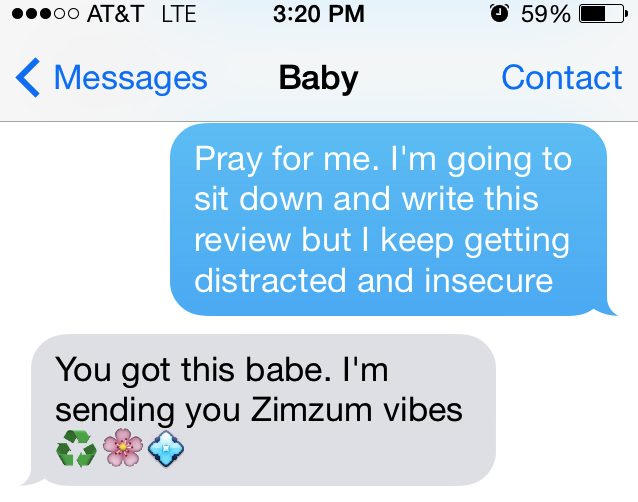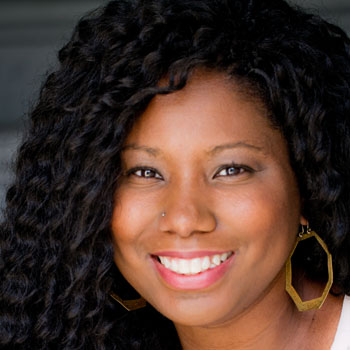On Sunday, I used an Audible credit to download, Rob Bell’s new book on marriage written and narrated with his wife, called, “The Zimzum of Love: A New Way Of Understanding Marriage”. Since Sunday morning I’ve listened to the book three times. It’s just that good. It’s short ( a little over two and had hours long), the theological language is accessible, the approach to faith is inclusive, and the production of the audiobook is flawless.
Rob and Kristen read back and forth, bantering over a jacket and uncomfortable phone calls, asking questions, and telling stories from their marriage with an easy grace you can tell they’ve refined over their past twenty years together. When I finished, I ran into the living room where my husband was and said, “it’s like sitting across the table from the Bells!”
I could just tell if I asked them to speak truth into my marriage this would be it: that marriage is more than roles and rules, positional authority or patriarchy, essence and equality. Marriage is the thing between two people who fall in love with each other and then make room for each other. Marriage is important not just because it somehow reflects Jesus’ relationship to the church, but because if reflects the very self-giving nature of God (or what theo-nerds, like my husband, call, “kenosis”). Marriage is important because where there is love, sacrifice, forgiveness, and tenderness there is shalom. And shalom is my favorite.
If I’m honest, I knew “The Zimzum of Love” would be a slam dunk for me when my husband posted the trailer for the book and commented, “Good Trinitarian theology here!”
[youtube https://www.youtube.com/watch?v=LU3hTwbJeWA]
Seriously, how could you not want to read, “The Zimzum of Love” after that trailer?
When I think about marriage and my struggles with nailing down exactly what I believe about marriage, it always comes back to the fact that I struggle with labels because I am an Anabaptist, a Third Way Woman.
When I wrote my four-part series on Third Way Womanhood, part of it came from my struggle with my identity as a woman and my role in my marriage. I was frustrated over the lack of voice and grace for anyone who chooses not the subscribe to a side in whatever debate going on. In one of those posts, I wrote that I submit to husband because Jesus submits to the Father and reader emailed me asking, “Do you really support submission in your marriage?” I would write back, “yes, I do.” Then they would ask, “So you don’t believe that a woman shouldn’t be a pastor or the primary breadwinner or that patriarchy is dangerous” to which I would write back, “No, I believe women are image bearer and should have freedom to express that in whatever way they feel call and yes, patriarchy is bad, but so is matriarchy that undermines the fact that men are image-bearers too. There’s good to both sides but marriage is more than positions and party lines.” Sadly more often than not, the conversation would rot away in the limbo space of the internet. I think partly because it’s hard to forge a new path, a new way of thinking and partly because I couldn’t authentically to subscribe to either side of the conversation about marriage wholeheartedly and the person on the other end was frustrated I wouldn’t give a clear cut answer.
After that series, I wondered if being a Third Way Woman is just my pretty way of saying an I’m an Indecisive Woman. But, when I think about Jesus, what I love most about him is that he refused to take sides. When cornered about taxes, he dropped a bigger reality that God desires an intimate connection with us– his image bearers. When the woman caught in the act of adultery was thrown before Jesus and he knew it was a trap set to see if he’d violate the trajectory of his ministry that championed the outcast in order to adhere to law, he revealed a deeper truth that we are all the outcast and in need of forgiveness. When beaten, humiliated, and hanging on a cross and the people challenged his divinity, his ability to save us not to mention–himself, he put on display the most powerful truth on earth, God is love and love looks like sacrifice. Love bleeds and weeps and forgives and always, always wins.
This model that Jesus set before us that avoided taking sides in order to reveal something about God is the path less taken and the essence of a Third Way theological framework.
So, I continued to identify as a Third Way Woman, hoping someday, someone will show us how to have the conversation around marriage acknowledging deeper truth and using more universal language than “submissive wife” or “mutual marriage”.
This is why I think the Bells are onto something important for us today. We’ve all heard the arguments and read the passionate blog posts from couples in the who affirm a specific theological frame work about marriage, but we haven’t heard anyone speak to the thing all married couples, egalitarian and complementatian alike have:
Zimzum:
the responsive, dynamic, exclusive, and sacred energy between two lovers that bursts into being when they create space for each other, to live, love, and thrive as a couple. The reality that when we practice God’s shalom, his self-giving love on in our most imitate relationship, every relationship we touch outside of it is forever changed.
This book is about peacemaking, being counter-cultural, and it’s incredibly subversive. All things that make my little Anabaptist heart sing. Finally, we’re getting out of the trenches of our broken theological frameworks to have a better conversation about marriage.
There’s a line in the book about we can survive in our marriage or thrive– “There’s a difference between survival and thrival.” that’s so refreshing to me.
We could survive in our theological frameworks that major on the roles and functions of the people in the marriage, or we could ask:
What makes a marriage thrive?
What is the appropriate posture to have that will create life between lovers?
What is the most authentic way to move forward together, leaving footprints of shalom as you walk in unity?
I’m so glad this book is a resource that Third Way, messy middle couples like my husband and myself can turn and easily affirm because the emphasis is on the love, the energy, the shalom creating function of your marriage and not necessarily biblical interpretation. I find it interesting that many have called this, “an egalitarian” view of marriage. Maybe it’s because we can with a great deal of surety say Rob Bell won’t be writing a book “Headship and Help-mating for the Millenaianal Marriage”. Maybe it’s because this view is so foreign, so unlike anything else we’ve heard we want to put it in the “liberal” camp whose tent tends to be wider and more welcoming to new ideas. Whatever the reason, I personally wouldn’t call, “The Zimzum of Love” an egalitarian book on marriage. If you ask me, I’d say it’s a Third Way Thrival for your marriage. A book that, as Scot Mcknight defines the Third Way view:
Beyond the fighting…..about marriage and roles, equality and position, function and family structure
and
Between the fighters who are all good and godly people just trying to figure out how to love their spouses well
in order
To carve out a middle way a way the starts with love and seeks shalom.
This is the book on marriage I’ve been waiting for. It’s provocative, yet peacemaking. It’s entertaining, yet enlightening. It choses a side, but the side is one we can all agree on: love, sacrifice, fidelity, and forgiveness changes the world, so let’s change the world–zimzumming with our spouses with sweet abandon, one marriage at a time.


 (actual texts sent between me and my husband from the past couple of days)
(actual texts sent between me and my husband from the past couple of days)
Zimzimming and seeking Shalom in my marriage,



Comments (5)